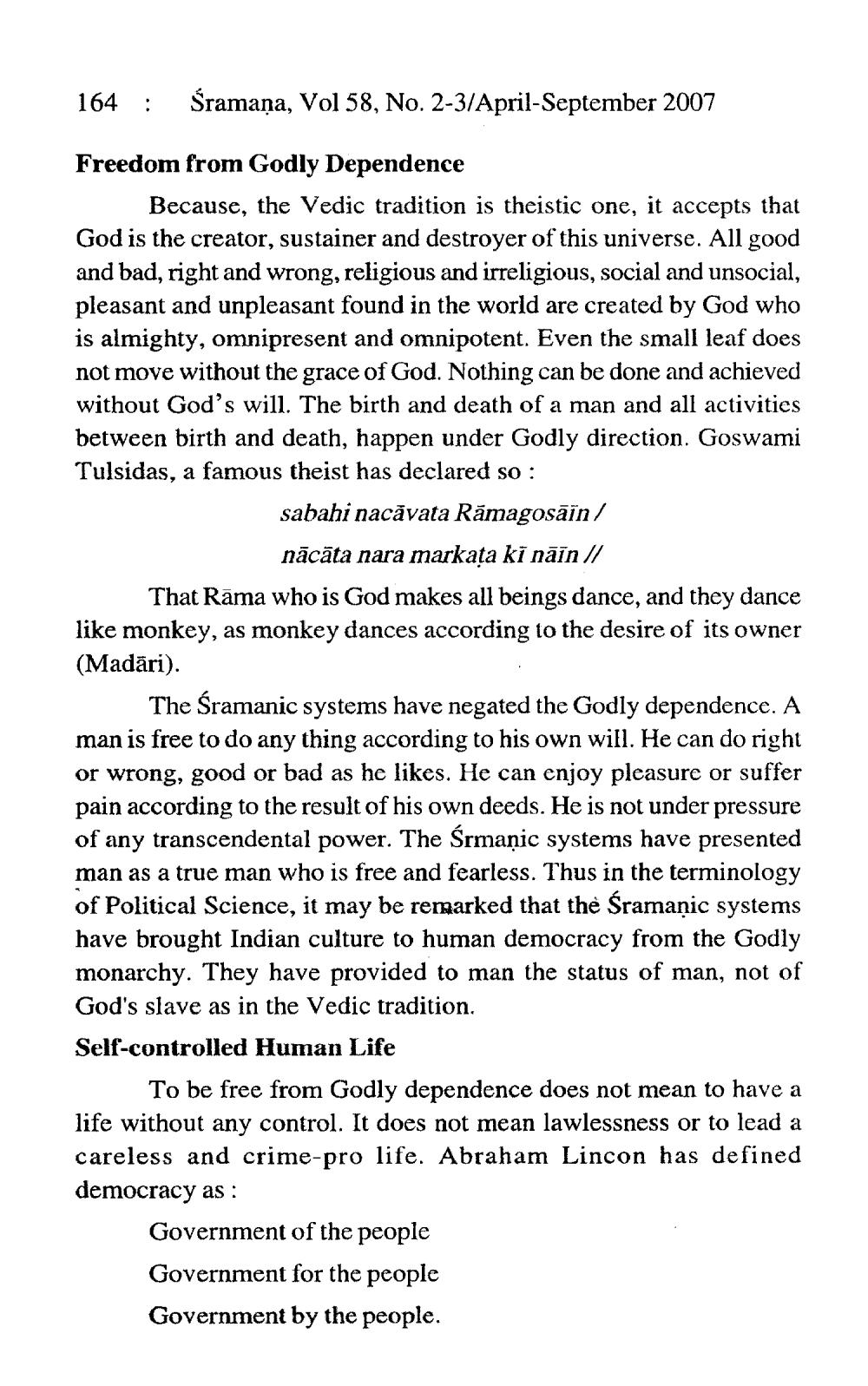________________
164 :
Śramaņa, Vol 58, No. 2-3/April-September 2007
Freedom from Godly Dependence
Because, the Vedic tradition is theistic one, it accepts that God is the creator, sustainer and destroyer of this universe. All good and bad, right and wrong, religious and irreligious, social and unsocial, pleasant and unpleasant found in the world are created by God who is almighty, omnipresent and omnipotent. Even the small leaf does not move without the grace of God. Nothing can be done and achieved without God's will. The birth and death of a man and all activities between birth and death, happen under Godly direction. Goswami Tulsidas, a famous theist has declared so :
sabahi nacāvata Rāmagosāïn/
nācāta nara markața ki nāin // That Rāma who is God makes all beings dance, and they dance like monkey, as monkey dances according to the desire of its owner (Madāri).
The Śramanic systems have negated the Godly dependence. A man is free to do any thing according to his own will. He can do right or wrong, good or bad as he likes. He can enjoy pleasure or suffer pain according to the result of his own deeds. He is not under pressure of any transcendental power. The Srmanic systems have presented man as a true man who is free and fearless. Thus in the terminology of Political Science, it may be remarked that the Śramanic systems have brought Indian culture to human democracy from the Godly monarchy. They have provided to man the status of man, not of God's slave as in the Vedic tradition. Self-controlled Human Life
To be free from Godly dependence does not mean to have a life without any control. It does not mean lawlessness or to lead a careless and crime-pro life. Abraham Lincon has defined democracy as :
Government of the people Government for the people Government by the people.




